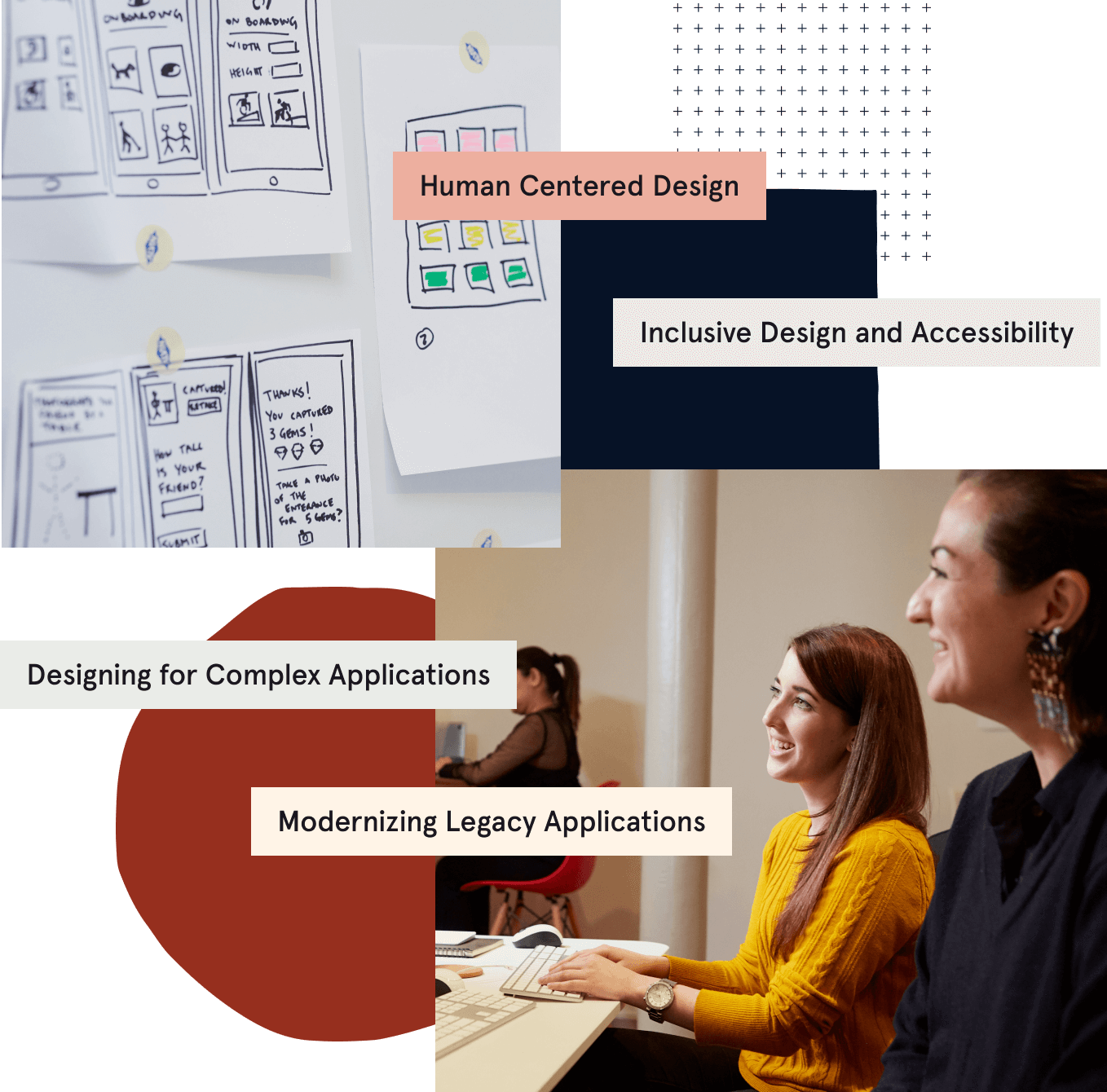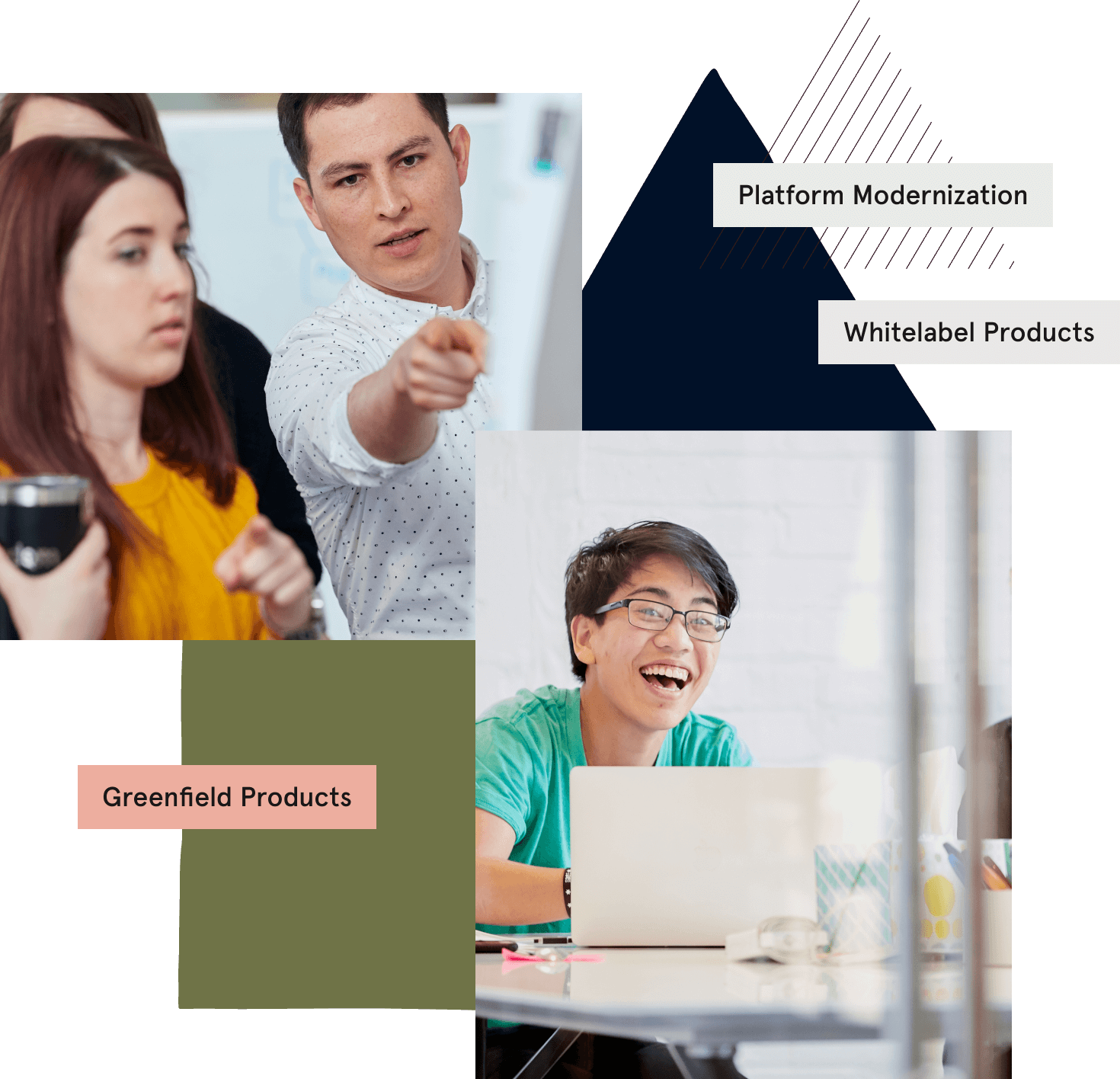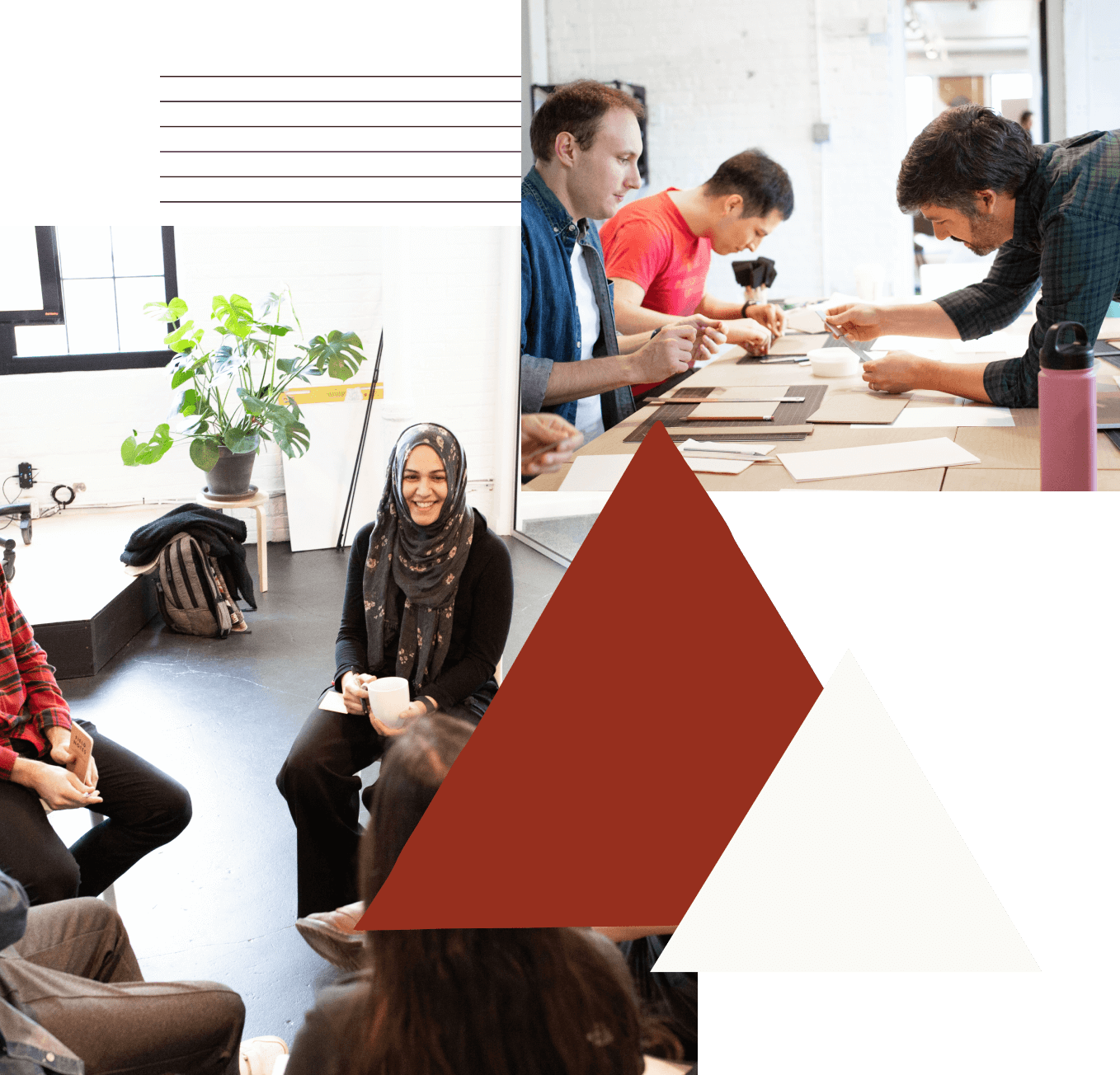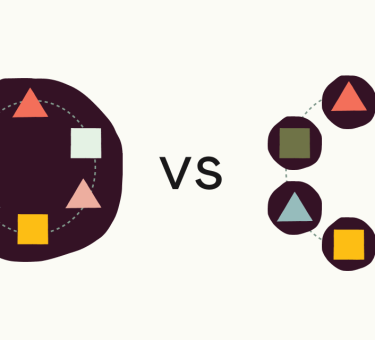Tandem’s software consultants come from many different backgrounds, and many of our engineers began their coding careers at a bootcamp program. In this three-part series, Jess and Caleb share their thoughts on the bootcamp experience, post-bootcamp paths, and Tandem’s apprenticeship program.
Why did you decide to go to coding bootcamp?
Caleb: I’ve always gravitated toward STEM, because both curiosity and problem-solving are just a part of my character. I started looking into bootcamps after helping my dad during his coding bootcamp for military veterans. I really liked the idea of being able to learn a set of skills within an industry that’s constantly changing.
I could have gone the self-taught route, but all the languages and career paths were overwhelming. I trusted that a bootcamp would give me structure to build the skills necessary to get my foot in the door to a software engineering career.
Jess: I come from a writing background, and I explored several career paths before I decided to learn to code: academia, teaching, proposal development, creative writing, and communications. I enjoy finding effective ways to convey information, and coding seemed like a natural fit. Coding is communication, except your audience is a computer.
I tried learning to code on my own, but it was intimidating – I didn’t have reference points for anything I learned. Bootcamp provided me with structure and support. It also provided a first-line credential, which I thought would help me secure an entry-level job.
What bootcamp did you attend?
Jess: I attended Actualize Bootcamp in Chicago. They’ve gone 100% remote since quarantine, but I attended a full-time, in-person program that lasted for fifteen weeks. Our core stack was Ruby/Rails, JavaScript, and Vue.js.
Caleb: I went to Thinkful’s coding bootcamp, which was completely virtual even prior to the pandemic. They teach PERN stack (PostgreSQL, Express, React and Node.js).
How did you choose your bootcamp?
Jess: My bootcamp cared about student success. Honestly, their culture is similar to Tandem’s — communication, collaboration, team building, inclusion. They chose their instructors based on teaching experience rather than coding experience.
Caleb: I cared a lot about bootcamp being remote and emphasizing diversity. I remember attending a bunch of information sessions and watching YouTube videos of real people’s experiences with a specific bootcamp. I chose based on the impressions I got from those sessions and videos.
How did your bootcamp handle tuition payments?
Caleb: My bootcamp had a financing option where they’d pay for your bootcamp and provide you with a monthly stipend. Then you’d pay it all back after you landed a job.
Jess: My bootcamp had financing options — most bootcamps do, since they usually cost between twelve and twenty thousand dollars. I was lucky enough to have funds to pay for my bootcamp out of pocket. I’m glad I didn’t have to worry about making loan payments during the pandemic. I did see “pay us back when you get a job” deals, but I was worried about the fine print.
What was your bootcamp’s teaching style like?
Caleb: My bootcamp had a structured support system set in place, with an academic success manager, mentor, and career coach. It kind of reminded me of high school. The entire day was scheduled, so in the morning we had class virtually. I was expected to have completed the readings and practice problems prior to class. Then I’d go to virtual breakout sessions and do that day’s practice problems with a partner.
When I ran into issues or needed help, I’d post in the bootcamp’s Slack channel and wait for a TA to join the session to help me. Then we’d break for lunch and have an afternoon lecture. Following the afternoon lecture, we’d again do practice problems with a partner.
Jess: High school is such a great metaphor! My experience was just like that: eight hours of classroom instruction five days a week. We had a job counselor, an instructor, and some TAs. We were encouraged to talk to them whenever we needed help, but there wasn’t any formal coaching or mentoring structure. It worked pretty well because my bootcamp was smaller than most.
How were projects structured? Did you have any collaborative assignments?
Caleb: The first project at Thinkful was a small team project. We built a super basic quiz app using Vanilla JavaScript. It basically taught us how to traverse the DOM.
I really enjoyed my last bootcamp project, which was on a larger team. We created a Go Fish game. We divided responsibilities between folks who wanted to do more frontend vs backend development. Then everyone was responsible for reviewing PRs before they were merged in. I primarily helped with game logic and documentation.
I remember it was really tricky to get our game to end, because we had to figure out how to create logic that determined when all the pairs in the deck were found. And the mobile-first design was a nightmare! Throughout that project, we used a project board and met daily to discuss who was working on what, what blockers people had, and so on.
The rest of the projects were solo. I don’t remember exactly what those projects were, but I think one was API-related and the other two had to do with stacks and queues.
Jess: We had group and pair projects — one per week for twelve weeks. They were interesting, but my bootcamp basically had to provide a prefab scaffold to allow us to “build” a group project over the course of a few days, so I didn’t get much organic experience in teamwork until I graduated and built my own team project. Our last project was solo — the goal was to build a full-stack app all by yourself.
What about your bootcamp’s program worked really well for you?
Jess: Actualize had a friendly, thoughtful approach to teaching – classes were small and collaborative. Bootcamp programs are designed to be immersive and intense, but the supportive environment made the program much less overwhelming.
Caleb: I enjoyed how structured my day was at Thinkful: lecture, complete practice problems with a pair, lunch, lecture, complete more practice problems with a pair. Then there were some weeks where I worked on my solo project and had daily check-ins with a TA.
What was the most challenging part of bootcamp?
Jess: It took me a long time to feel comfortable delving into theory.
Caleb: De-emphasizing theory can cause us to lean more into our own methods for solving problems.
Jess: That’s true – and my bootcamp definitely did a lot to teach students how to troubleshoot problems and look for solutions. It still would have been nice to have more integration. I didn’t like that my bootcamp separated theory and practice so much.
Caleb: Did you learn about algorithms and data structures at your bootcamp?
Jess: Sort of? We had “Computer Science Minute” a few times a week. It wasn’t very helpful, and it wasn’t integrated into the rest of the work. Also, you can’t really teach a concept like data structures in an hour — none of that information will stick, and most of it won’t even make sense.
Caleb: Yeah, it was initially really fun, but as soon as the cool examples dwindled, I was like, “This is so complicated, how do we even relate this back to code? Am I going to be expected to know this for every interview? If that’s the case, what type of work will I actually be doing? Has this whole experience all been for nothing?” *goes into existential crisis mode*
Based on the challenges you faced, what would you have changed about your bootcamp experience?
Caleb: I probably would have extended the bootcamp’s schedule to include one day a week to do catch-up work. Even though every day we did practice problems with our pair, there were few, if any, times that my pair and I actually completed all the practice problems for that day.
Jess: I would have appreciated more context. My bootcamp skills felt pretty narrow and superficial. After the bootcamp, I felt less like a trained chef and more like someone who could make one specific meal by rote.
Final thoughts on your coding bootcamp experience?
Caleb: Bootcamps are a great option to give you structure and go over the basics! That structure helped me feel less overwhelmed by all the different options and paths available within tech. It was also a confidence booster and portfolio-builder: as I completed the different modules, I created actual projects to showcase!
Jess: My bootcamp did give me a solid foundation, but it took me a while to branch out from the little pot they planted me in. I struggled to connect to long-term learning goals.
So I’d recommend bootcamp as the first step in becoming a developer, but I also advise new coders to think in terms of their unique value. As you move forward in your career, give yourself the freedom to explore.
Bootcamp Tips:
- Get feedback from people who attended the bootcamp
- Interview instructors and staff
- Ask them what support they offer students and grads
- Review their syllabus, learning materials and online projects
- Attend student demos and class sessions









